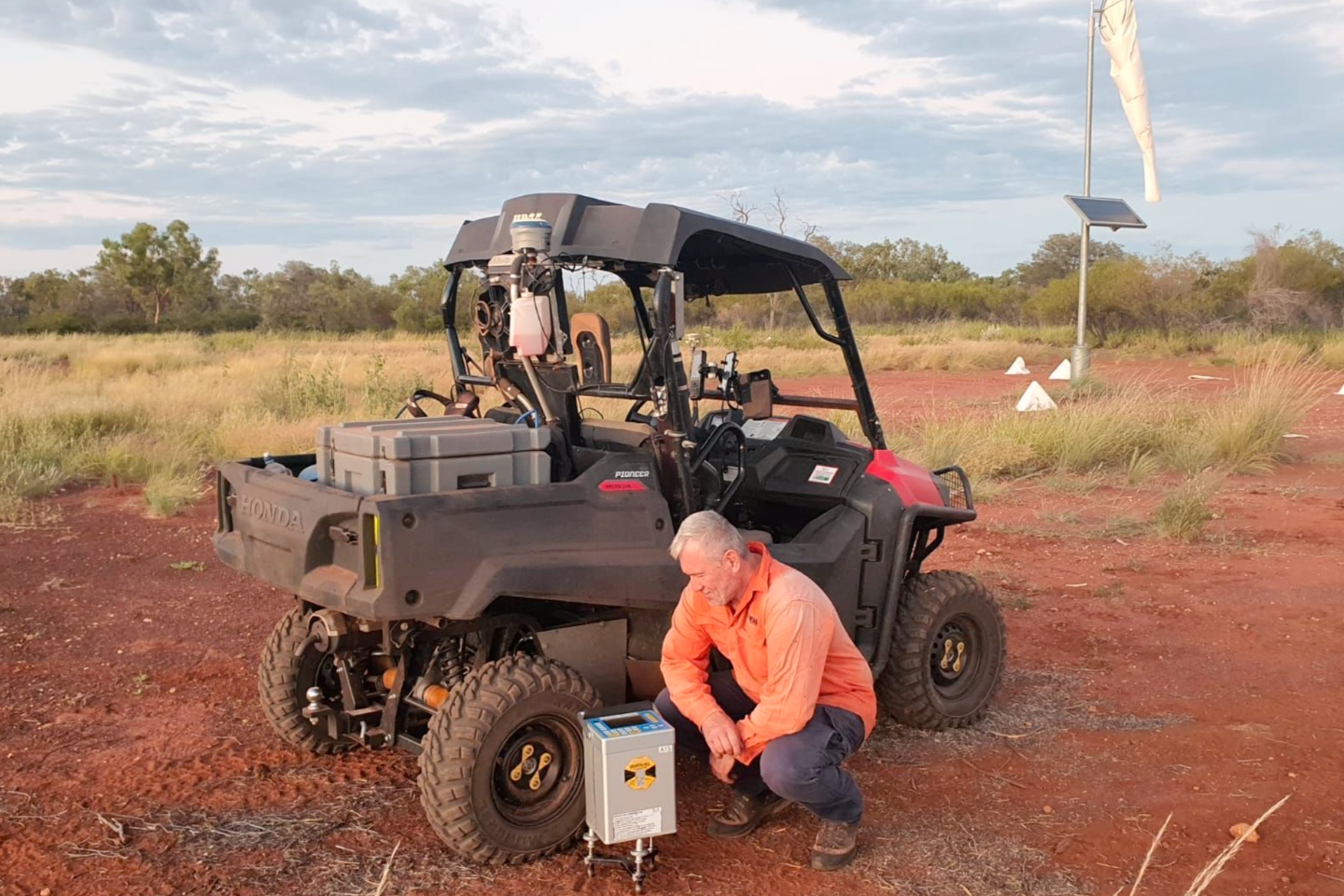Middle Island has unveiled a couple of drill-ready targets at its Crosswinds copper prospect in the Northern Territory after a five-line Induced Polarisation survey at the site. The company says the zones are supported by ground-based gravity work and regulatory assessments are the only thing standing in the way of an imminent probe.


Middle Island Resources has unveiled a couple of drill-ready targets at its Crosswinds opper prospect, part of the larger Barkly project in the Northern Territory, after the completion of a five-line Induced Polarisation, or “IP” survey at the operation. The company says the targets are supported by ground-based gravity work and regulatory assessments are the only thing standing in the way of an imminent probe.
The work builds on a December 2021 program helmed by Planetary Geophysics that saw the completion of a single 2.65km long 2D IP/resistivity line.
Middle Island says that with its new data, the company now has a total of 24-line km of IP/resistivity spread across four lines that are 500m apart. The geophysical data now not only runs both north and south of the original line but also extends its coverage.
The survey was done to construct a 3D model of the target so the IP anomaly could be better defined and future drill holes could be targeted.
To vector in on the area’s targets, Middle Island has since constructed several depth slices — horizontal cuts through a 3D volume of geophysical data, that has defined a second, larger anomaly just a few hundred metres to the north-west of the initial discovery.
The company says the anomalies could be indicative of massive sulphide mineralisation — one of the strongest sources of metals such as copper, lead and zinc.
Middle Island has also completed a ground gravity survey at Crosswinds, helping further define its drilling targets.
Drilling is expected to start once the Northern Territory Department of Mines has completed the assessment of its Mine Management Plan for the proposed exploration play at Barkly.
Copper was initially unearthed in the region about two years ago when a 130m section going 0.75 per cent was defined. Subsequent grab samples outlined through table drain cutting delivered solid grades through portable XRF analysis.
The copper mineralisation concentrated around the grounds surface is interpreted to be derived from the ancillary migration along the regions faults that extend from primary mineralisation within the Proterozoic basement rocks through younger sediments.
The Crosswinds project is thought to have intruded into the Cambrian Georgina Basin strata, causing surface precipitation.
Secondary copper mineralisation in the form of malachite has migrated up growth faults thought to extend from primary copper-gold mineralisation inside Proterozoic basement rocks
Last December, an IP line revealed a prospective chargeable target at a depth of about 500m. This type of mineralisation is thought to be responsible for a litany of large and dispersed sulphides, akin to the iron oxide-copper-gold or "Olympic Dam"-style copper gold deposits often considered as one of the world's most significant sources of copper, gold, and silver.
Is your ASX-listed company doing something interesting? Contact: matt.birney@businessnews.com.au












